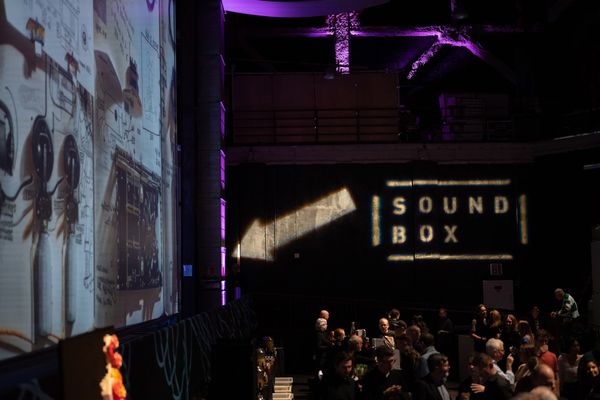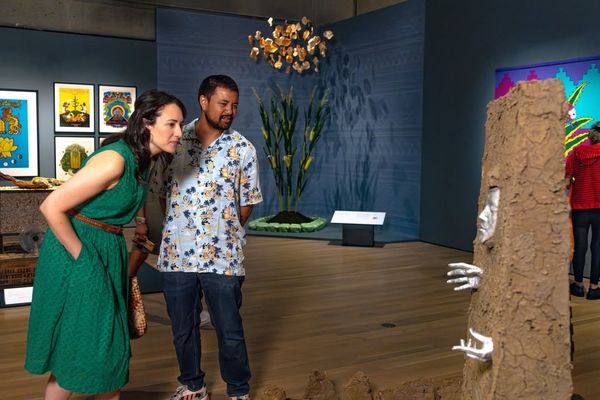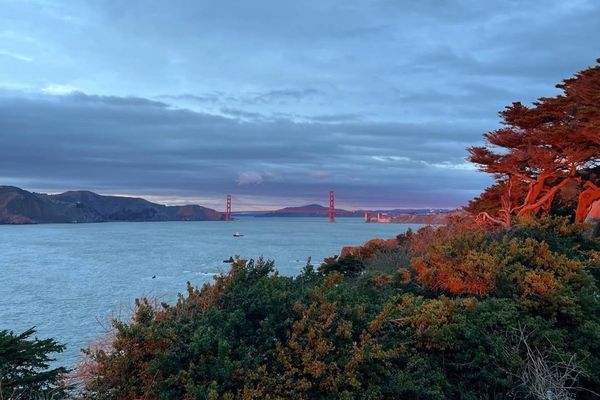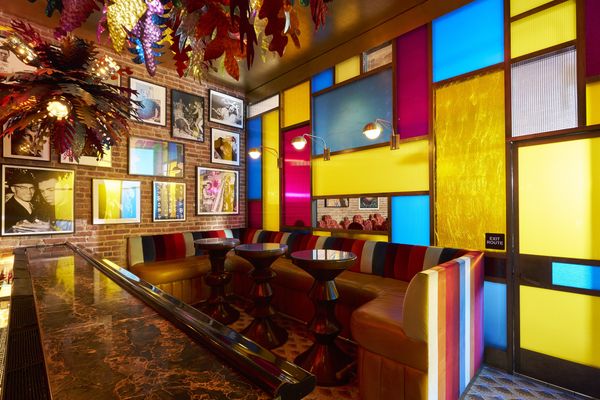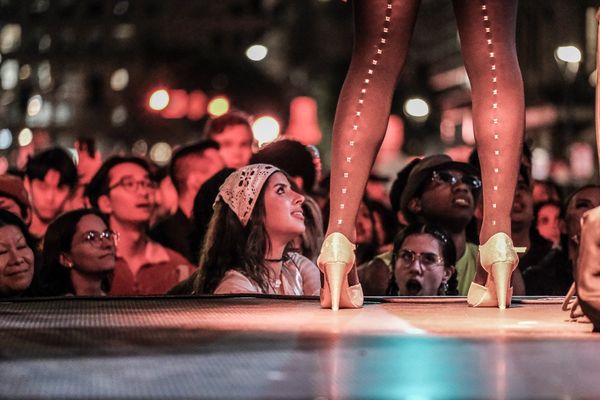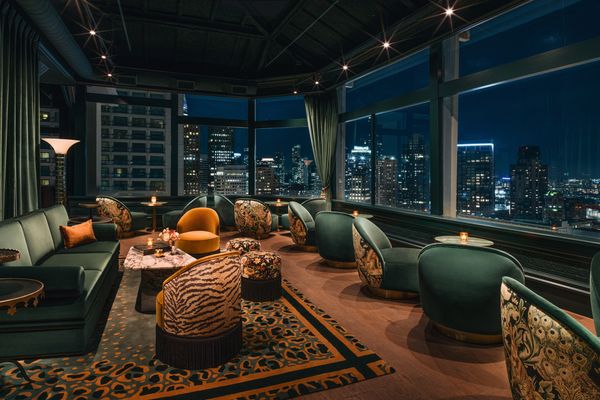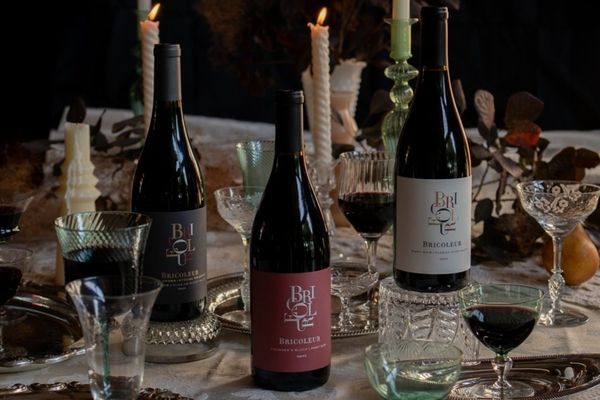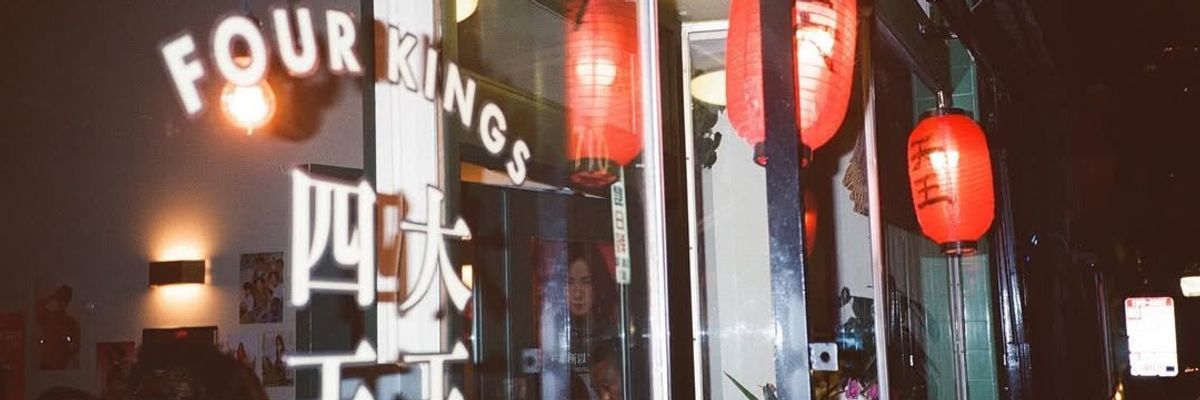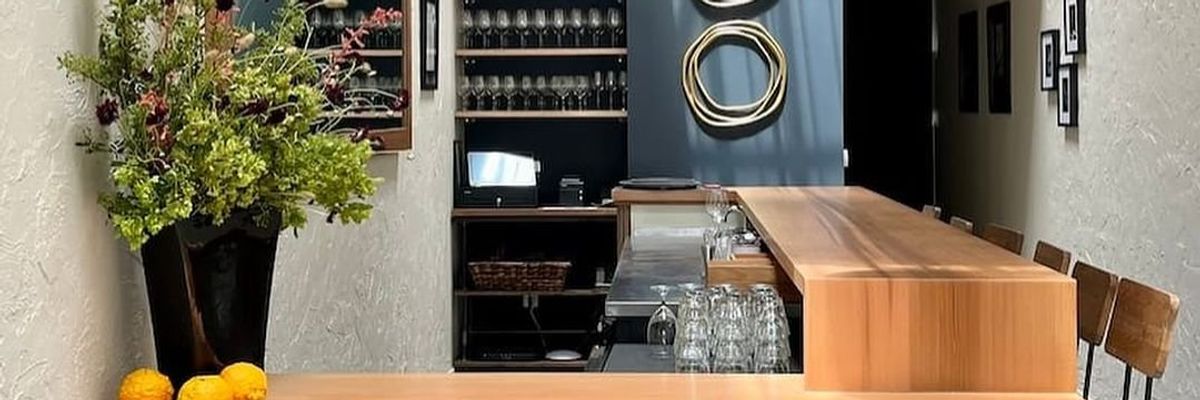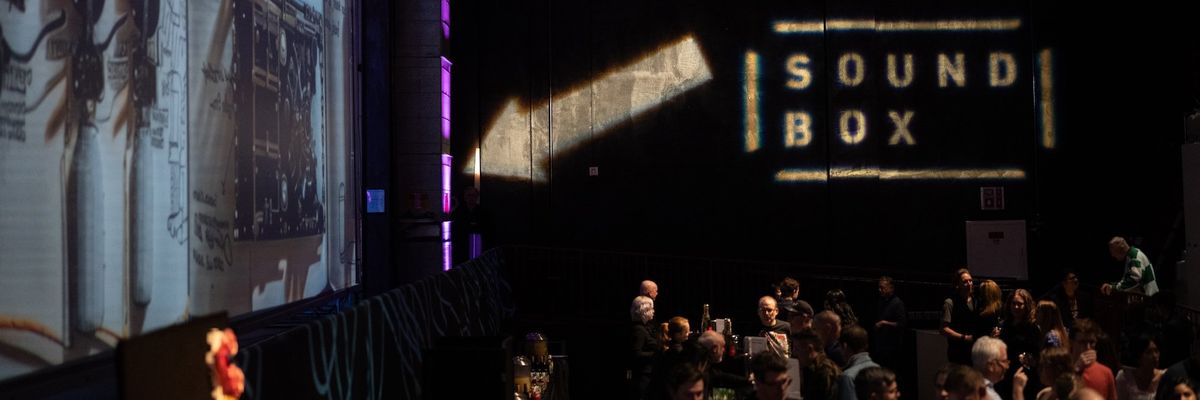Score! The artwork is absolutely amazing at the Tribal & Textile Arts Show in the Festival Pavilion at Fort Mason Center.
But so, too, was the McCall Associates buffet at last night’s opening-night party which benefitted the de Young Museum’s Art of Africa, Oceania and the Americas and Textiles Galleries. That’s because McCall Executive Chef Lucas Schoemaker had cooked up our all-time favorite: Swedish Meatballs!
That tasty tidbit might seem a culinary anomaly at a Tribal Arts show. But as the show is a celebration of world cultures and world art, why the heck not?
Dealers from around the world are showcasing (through Sun., Feb 15) a cache of global goods for sale which will both delight and broaden the vision of any viewer.
“Our display mixes works from three different continents, Oceania, Africa and Asia,” explained gallerist Patrick Mestdagh of Belgium. “Yet when combined, they share a congruousness of beauty.”
More insight was gleaned in the Dalton-Somare (of Milan) booth.
“In Tribal art, the age of a piece is only important to a certain point,” said gallerist Gerolamo Vigorelli. “Really, it’s the quality of the art.”
Many of the Tribal masks on display in this gallery are made of wood and really, not that old. Some pieces merely dating from the late 19th-century.
“But these pieces were never on display. Rather they might have been used in initiation ceremonies and carried a deep meaning for their people,” continued Vigorelli. “Many of the masks are ritual pieces or ancestor figures created by cultures which did not have a written language. So these pieces spoke of the common values and aesthetics shared by that community.”

Lucy Buchanan and her husband, Fine Arts Museums Director John Buchanan
Tooling around the different booths, we delightfully discovered that not only was the evening fun but an educational one, too. A sort of crash course in Art History and World Culture, combined with cocktails.
“Considering the current climate, our field has held up well in the art market,” said gallerist Bruce Frank of New York. “People who collect Tribal art are very serious collectors.”
On display in Frank’s booth is a primitive Korewori guardian figure from Papua New Guinea.
“A majority of Tribal art came to real prominence in the 1960s,” said Frank. “Until then, many people in the world didn’t even realize this kind of art even existed.”
And folks who collect these works, explained Frank, don’t just wake up one morning and decide to start buying Tribal art.
“In New York, you used to have Wall Street guys pulling down a $2 million bonus and all of the sudden, they’re buying Warhols and Basquiats.” said Frank. “We really don’t have those type of art speculators in the Tribal art market.”
Sam Singer, local PR poohbah and a noted Tribal art collector, said that it took him at least 10 years of study before he even started buying any art.
“Actually, I have more books than artworks,” said Singer, laughing. “I could spend hours reading about Tribal art!”
Check out photos below.

Gorgeous galleries of goods by dealers Joaquin Pecci, Renaud Vanuxem and Jack Sadovnic

Donna and Chuck Huggins

A 19th-century Uzbekistan Ikat coat at the Gail Martin (of NY) Gallery booth

Gallerist Fily Keita of Los Angeles

B.C. Dentan Works of Art (of SF) display

SF art dealer Peter Pap with Dodie Rosekrans and Toby Rose

Tribal tableaux at the Patrick & Ondine Mestdagh (of Belgium) booth

Eleanor Coppola and Zenobia Barlow

Mask in the Lewis-Wara Gallery (of Seattle) booth

Dr. Harvey Glasser and his wife, Gail Glasser

A circa-1890 Blackfoot Tribal War Shirt at the Aquisition Gallery (of New Jersey) booth

Gallerists Margianne and Arthur Erickson of Portland

A late-19th century mask at the Dalton-Somare (of Milan) booth

Tribal art aficionado Sam Singer and gallerist Bruce Frank of New York

Acquella tarde en Samana, 2008 Mixed media on amate paper by Jose Bedia at the Cavin-Morris Gallery Booth



